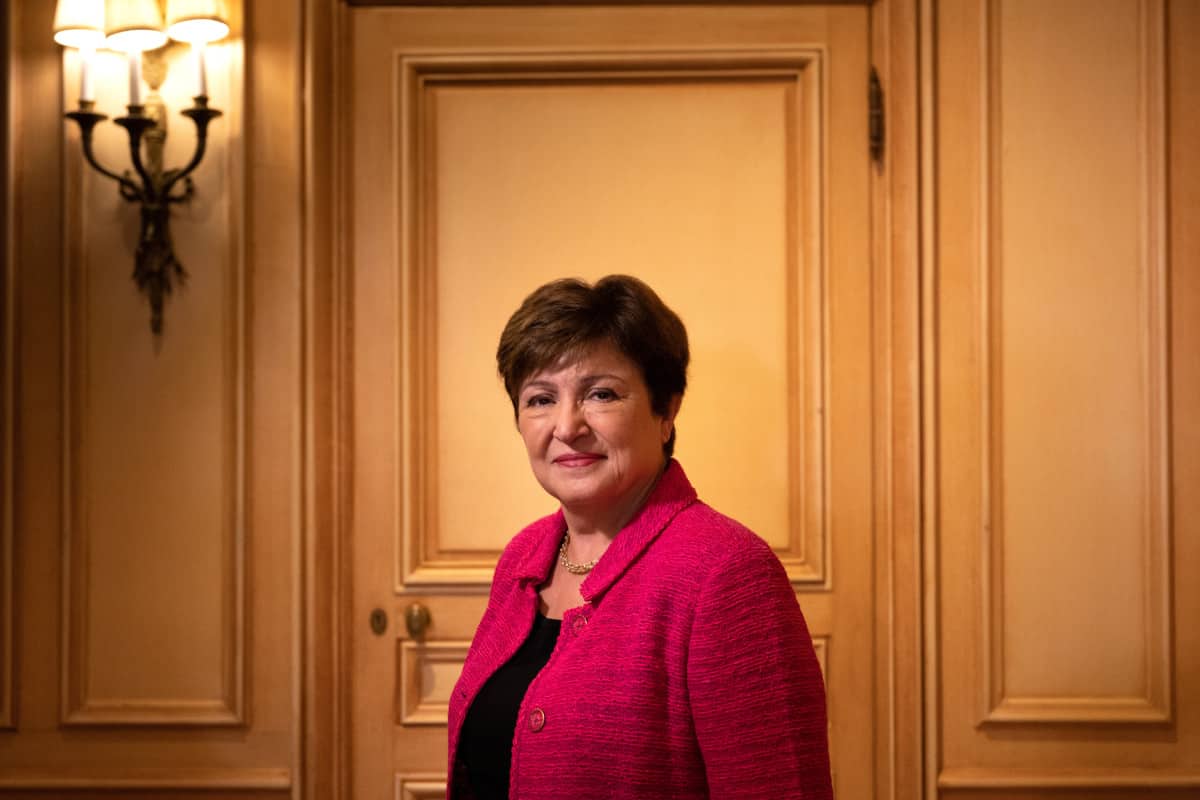New Delhi, India— Appealing to G20 members to lead by example in delivering on the promise of US$100 billion per year for climate finance, International Monetary Fund (IMF) Managing Director Kristalina Georgieva has underscored the need for cohesive effort to prevent grave risks to economic well-being and macro-financial stability from climate change.
In a statement today at the G20 Leaders’ Summit in New Delhi, India, she said, ““Our one and only earth is threatened by existential climate change. Ahead of COP28, we must raise ambition to decisively reduce emissions to prevent grave risks to economic well-being and macro-financial stability. Transforming this ambition into reality will require large investments both from the international community and the private sector, as well as an appropriate price for carbon.”
The statement further quoted her saying, “G20 members must lead by example in delivering on the promises of $100 billion per year for climate finance, supported by strengthening the Multilateral Development Banks. At the IMF, we have secured over $40 billion to support vulnerable countries through our Resilience and Sustainability Trust (RST) to build climate resilience.”
She also called on the global leaders to mobilize domestic resources. “At the same time, countries also need to mobilize domestic resources to finance and manage the green transition through tax reforms, effective and efficient public spending, strong fiscal institutions, and deep local debt markets. To help countries in this effort, the IMF is providing policy support and capacity development in collaboration with partners.”
“Our family of economies is gradually healing from a string of major shocks. But the recovery is slow and uneven, with medium-term growth prospects being the weakest in decades in an environment of still elevated inflation, high interest rates, and growing fragmentation. The risk of further divergence is real, with richer countries being more resilient to shocks and vulnerable emerging and low-income countries contending with limited buffers,” the statement said.
Calling for reforms, Georgieva said, “Against this background, all countries should pursue sound policies to support economic and financial stability and growth-oriented structural reforms. This is especially important in emerging and developing countries, where such reforms can boost output by up to 8 percent over 4 years.”
“We also need to further invest in international cooperation. This implies swiftly addressing debt problems where they arise, including through the G20 Common Framework and the new Global Sovereign Debt Roundtable. And I call on our members to strengthen the global financial safety net. Since the start of the pandemic, the IMF has injected $1 trillion in reserves and liquidity through lending to nearly 100 countries and the historic SDR allocation; and I thank our members who have helped us reach the goal of channeling $100 billion to vulnerable countries,” the statement added.
On global economy, She was further quoted as saying, “To make the global economy stronger and more resilient in a more shock-prone world, it is vital to reach an agreement to increase the IMF’s quota resources before the end of the year and secure the needed resources for the Fund’s interest-free support to the poorest countries through the Poverty Reduction and Growth Trust.”
“To build a prosperous future, we need to harness the potential of digital technology. India’s achievement in developing top-tier digital public infrastructure (DPI) stands as a beacon for others. More work lies ahead, including in the realm of digital money and crypto assets. To this end, the G20 has tasked relevant institutions to improve regulation and supervision of crypto assets—the IMF is contributing to proposals for a comprehensive policy framework; and advance the debate on how central bank digital currencies could impact the global economy and financial system,” she said.








